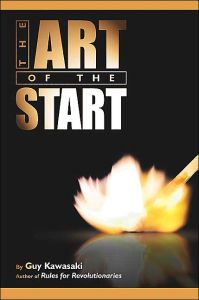Join getAbstract to access the summary!

Join getAbstract to access the summary!
Guy Kawasaki
The Art of the Start
The Time-Tested, Battle-Hardened Guide for Anyone Starting Anything
Portfolio, 2004
What's inside?
The key to a good start-up is not your business plan or your investors – it`s your passion. That`s what makes it an art.
Recommendation
This is not a manual, but rather a collection of mostly useful tips for people who wish to start businesses, or even, as author Guy Kawasaki claims, other sorts of projects, including nonprofit organizations. Kawasaki may overuse business-babble such as “bootstrapping” or “rainmaking” (in fact, he recommends coming up with a brand name that can enter the language as a verb, such as Google or Xerox) – but his style is good-natured and humorous. The chapters are divided accessibly with subheads, charts, bullet points, “minichapters,” answers to “Frequently Avoided Questions” and reading lists, making it easy to find important points. Many of Kawasaki’s “exercises” are tongue-in-cheek, like, “Go to eBay and search for used Aeron chairs.” He got his start working at Apple Computer, marketing early Macintoshes, and he now runs a venture capital firm, Garage Technology Ventures. He refers to both frequently, and most of the book’s examples come from these venues, not from inside knowledge of others start-ups, even though the author has been involved in several. This isn’t the only book you’ll need to read when you decide to start a business, but getAbstract finds that its iconoclastic pointers are useful and fun, and its sections on pitching, recruiting and branding, in particular, apply to businesses of any size.
Summary
About the Author
Guy Kawasaki got his start in marketing at Apple Computer and went on to found several high tech businesses. He currently runs the venture capital firm Garage Technology Ventures. He is the author of seven books including Rules for Revolutionaries and How to Drive Your Competition Crazy. He also writes a column for Forbes magazine.























Comment on this summary